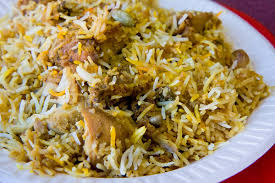
US Open 2024
Krishnastami, also known as Janmashtami or Gokulashtami, is one of the most significant Hindu festivals celebrated with great devotion and enthusiasm across India and around the world. This auspicious occasion marks the birth of Lord Krishna, the eighth incarnation of Lord Vishnu, who is revered as a divine protector, philosopher, and guide. In 2024, Krishnastami will be observed on the 26th of August, and preparations for this grand festival are already underway.
The Significance of Krishnastami
Krishnastami holds a special place in Hindu culture and spirituality. It commemorates the divine birth of Lord Krishna over 5,000 years ago in the town of Mathura. According to Hindu mythology, Lord Krishna was born in a dungeon where his parents, Devaki and Vasudeva, were imprisoned by Devaki’s brother, King Kansa. The prophecy that Devaki’s eighth son would be the cause of Kansa’s downfall led the tyrant king to kill all of Devaki’s previous children. However, when Krishna was born, a series of divine interventions helped Vasudeva to safely carry the newborn to Gokul, where he was raised by Yashoda and Nanda.
The festival not only celebrates Krishna’s birth but also his role in establishing the principles of Dharma (righteousness) and Bhakti (devotion). His teachings, particularly those in the Bhagavad Gita, continue to inspire millions around the world.
How Krishnastami is Celebrated
Krishnastami is celebrated with various customs and traditions that vary regionally. Despite the differences, the core essence of the celebration remains the same—honoring Lord Krishna and his life.
- Fasting and Devotional Practices:
- Devotees observe a fast on Krishnastami, abstaining from food and water until midnight, the believed time of Krishna’s birth. The fast is often broken with a feast of special foods made in honor of Krishna.
- Temples and homes are adorned with flowers and lights, and devotees chant devotional songs and prayers, seeking the blessings of Lord Krishna.
- Dahi Handi:
- In Maharashtra and parts of South India, Dahi Handi is a popular event associated with Krishnastami. It involves the creation of a human pyramid to break a pot filled with curd (dahi), symbolizing the playful and mischievous nature of young Krishna, who was fond of butter and curd.
- The event draws large crowds, and participants, often young men, compete to form the tallest pyramid. The breaking of the pot is accompanied by cheers and celebrations.
- Ras Leela and Krishna Jatra:
- Ras Leela, a dramatic enactment of Krishna’s youthful exploits, especially his playful interactions with the gopis (cowherd girls), is performed in various parts of India, particularly in Uttar Pradesh. This dance-drama is a visual and spiritual treat for devotees.
- In Odisha, the Krishna Jatra, a traditional form of theater, narrates the life and teachings of Krishna, attracting devotees from across the state.
- Midnight Celebrations:
- The climax of Krishnastami is the midnight celebration when the birth of Krishna is reenacted. Temples and households hold special rituals and aarti (prayer ceremony) to mark this divine moment.
- Idols of baby Krishna are placed in cradles, symbolizing his birth, and are worshipped with flowers, sweets, and prayers.
Krishnastami 2024: Observances and Events
In 2024, Krishnastami is expected to be celebrated with even greater fervor due to the gradual return to normalcy after the pandemic. Several events and rituals will be organized in temples and communities, with an emphasis on both traditional observances and modern interpretations.
- Virtual Celebrations:
- Given the growing influence of digital platforms, many temples and religious organizations plan to stream live events, allowing devotees worldwide to participate in the celebrations. Online bhajans (devotional songs), storytelling sessions, and interactive sessions with spiritual leaders are some of the anticipated activities.
- Community Events:
- Local communities are expected to host various events, including Dahi Handi competitions, Ras Leela performances, and devotional singing. These events will provide opportunities for people to come together and celebrate the festival collectively.
- Environmental Awareness:
- In recent years, there has been a growing awareness of environmental issues during religious festivals. In 2024, many communities plan to incorporate eco-friendly practices in their Krishnastami celebrations, such as using biodegradable materials for decorations and minimizing waste.
- Social Initiatives:
- Inspired by the teachings of Lord Krishna, many organizations use Krishnastami as an opportunity to launch social welfare initiatives. These include distributing food to the needy, organizing blood donation camps, and providing educational materials to underprivileged children.
Krishnastami 2024 promises to be a celebration filled with devotion, joy, and community spirit. As devotees prepare to honor the birth of Lord Krishna, the festival serves as a reminder of the timeless teachings of love, righteousness, and devotion that Krishna imparted. Whether through fasting, singing, or participating in community events, Krishnastami offers a chance for spiritual renewal and connection with the divine. As the world continues to embrace both tradition and innovation, Krishnastami 2024 will undoubtedly be a vibrant and meaningful celebration.




